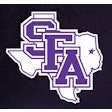The NFL hopes the court will expand its lower-court victory by making all professional sports leagues immune from antitrust laws; "Sports Law" contributor John T. Wolohan offers an opinion about the league's chances of victory.
Case Summary by Andrew Cohen
Having beaten an apparel company that tried to muscle in on its league-wide licensing agreement with a competing apparel company, the National Football League decided to take its already-won fight to the rest of the corporate world. In an unusual move, the NFL, with the backing of the National Hockey League and the National Basketball Association, convinced the United States Supreme Court to hear its vanquished foe's appeal - in the apparent hopes that the court will expand the NFL's victory before the Seventh Circuit by making all professional sports leagues immune from antitrust laws.
The issue in American Needle v. National Football League was whether the NFL's collective licensing of individual team trademarks should be exempt from antitrust review. "Member clubs of the NFL," concluded the league's single-entity defense, "have no independent value, no purpose, indeed no meaningful reason for existence but for their participation in the league itself." In asking for a Supreme Court review, lawyers for the NFL wrote that the league hoped for a clarification of antitrust laws. "This issue is a recurring one that limits the ability of professional sports leagues and similar joint ventures to engage in and enhance inter-brand competition," read the NFL's brief.
The danger in opting against an immediate dismissal of American Needle's suit is that the Seventh Circuit's decision goes against the grain of more than five decades of case law in other circuits. While the court stated that the single-entity status of sports leagues "should be addressed. . . one facet of a league at a time," prior appellate decisions have held that professional sports leagues are subject to scrutiny under Section 1 of the Sherman Act.
"It certainly could backfire," University of Toledo professor Geoffrey Rapp, a specialist in sports and antitrust law, told Canada's National Post. While sports leagues have tried to draw comparisons to the business relationship of a parent company and its subsidiary, Rapp noted, "Sports teams are separate business entities. They compete in many areas, such as competition for talent."
A Supreme Court decision in favor of the NFL could, depending on its scope, free professional leagues to make their own decisions on location and ownership of teams, contraction of franchises and television restrictions, all without fear of litigation under Section 1 of the Sherman Act.
Opinion by John T. Wolohan
Section 1 of the Sherman Antitrust Act states that "[E]very contract, combination in the form of trust or otherwise, or conspiracy, in restraint of trade or commerce among the several states, or with foreign nations, is declared to be illegal." In applying the law, the United States Supreme Court in 1922 ruled that antitrust law does not apply to Major League Baseball because the games were local (they did not cross state lines), and the game was not a trade or commerce as defined by Congress.
Since the court's decision, the National Football League and other sports leagues have argued that, like baseball, they too should be exempt from antitrust law. The courts, however, ignoring their own precedent, have resisted such arguments and have instead ruled that only Congress can exempt an industry from antitrust law. Therefore, the chances of the Supreme Court granting the NFL, or any other professional sport, a blanket antitrust exemption like the one provided baseball is very unlikely.
However, it would not be unusual for professional sports to be granted some form of limited immunity from antitrust laws. For example, in 1961, Congress passed the Sports Broadcasting Act, which provided the NFL, NHL NBA and MLB an antitrust exemption in order that they could pool their individual television rights and sell them as a single product.
In order to succeed, the leagues will need to show that any policy prohibiting franchise relocations without league permission has a precompetitive benefit to fans and is essential for the respective league's financial health. As MLB is proud to point out, because of its antitrust exemption, only one baseball team has changed cities in more than 20 years. However, before the leagues get too cocky, they should remember that the courts rejected these same arguments about franchise relocation in the 1980s when the NFL tried to prevent the Oakland Raiders from moving to Los Angeles.




































